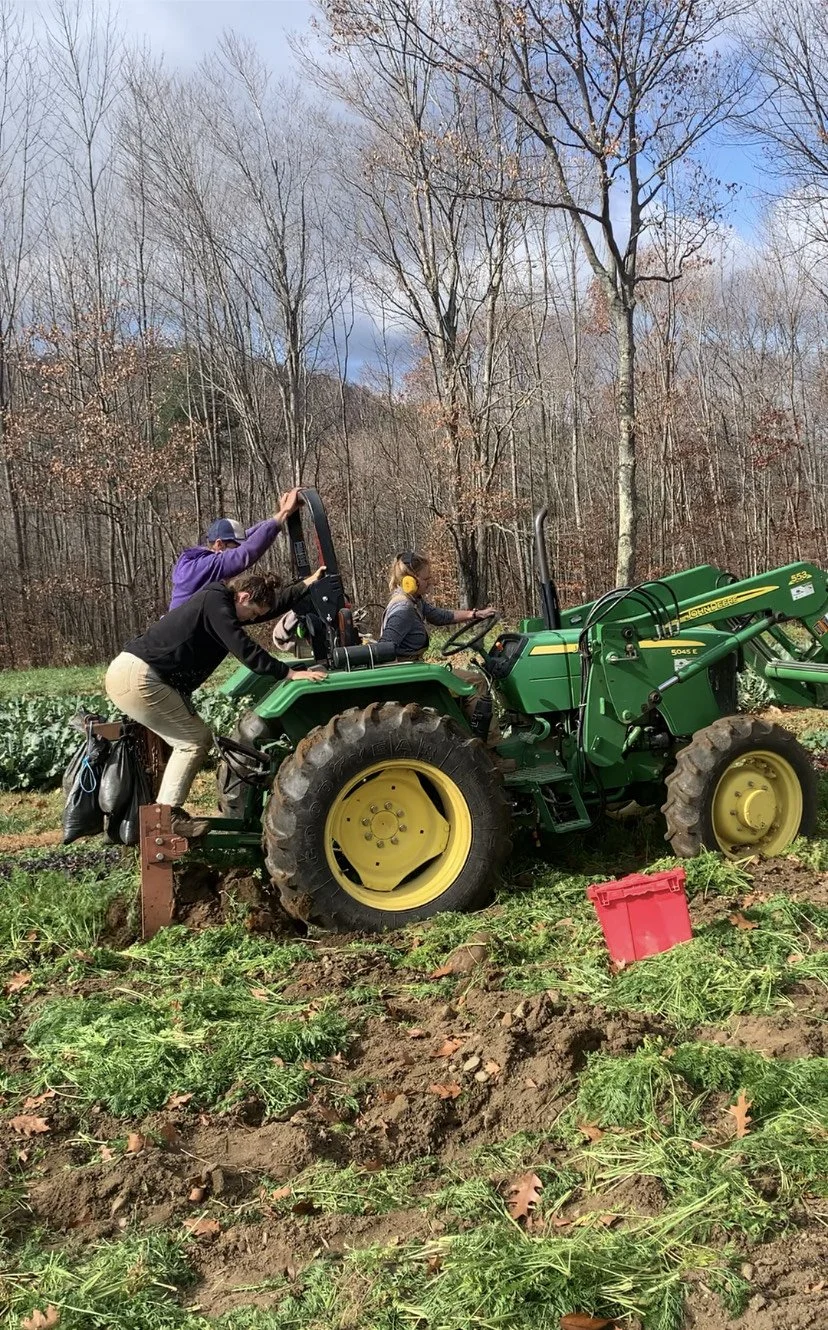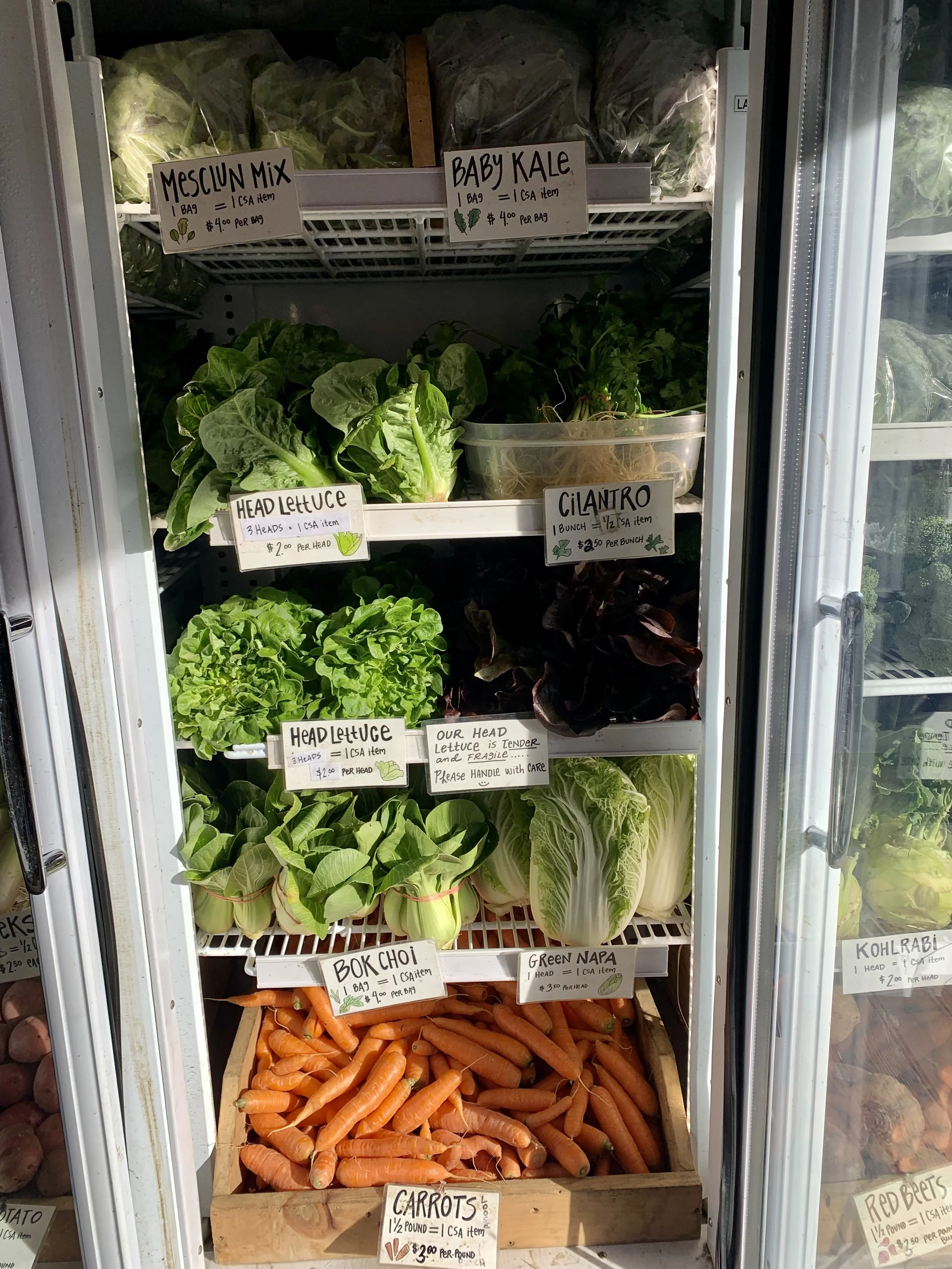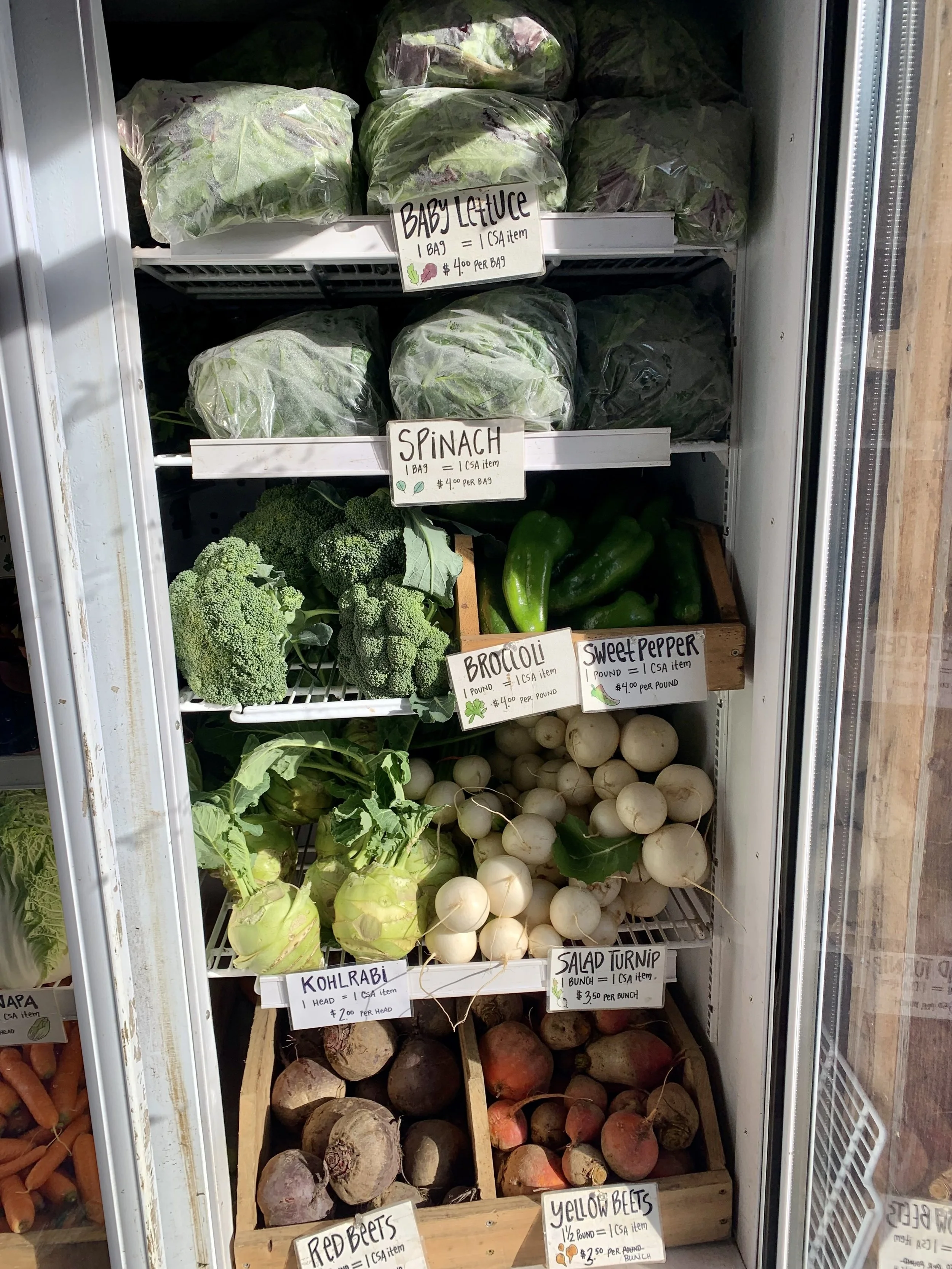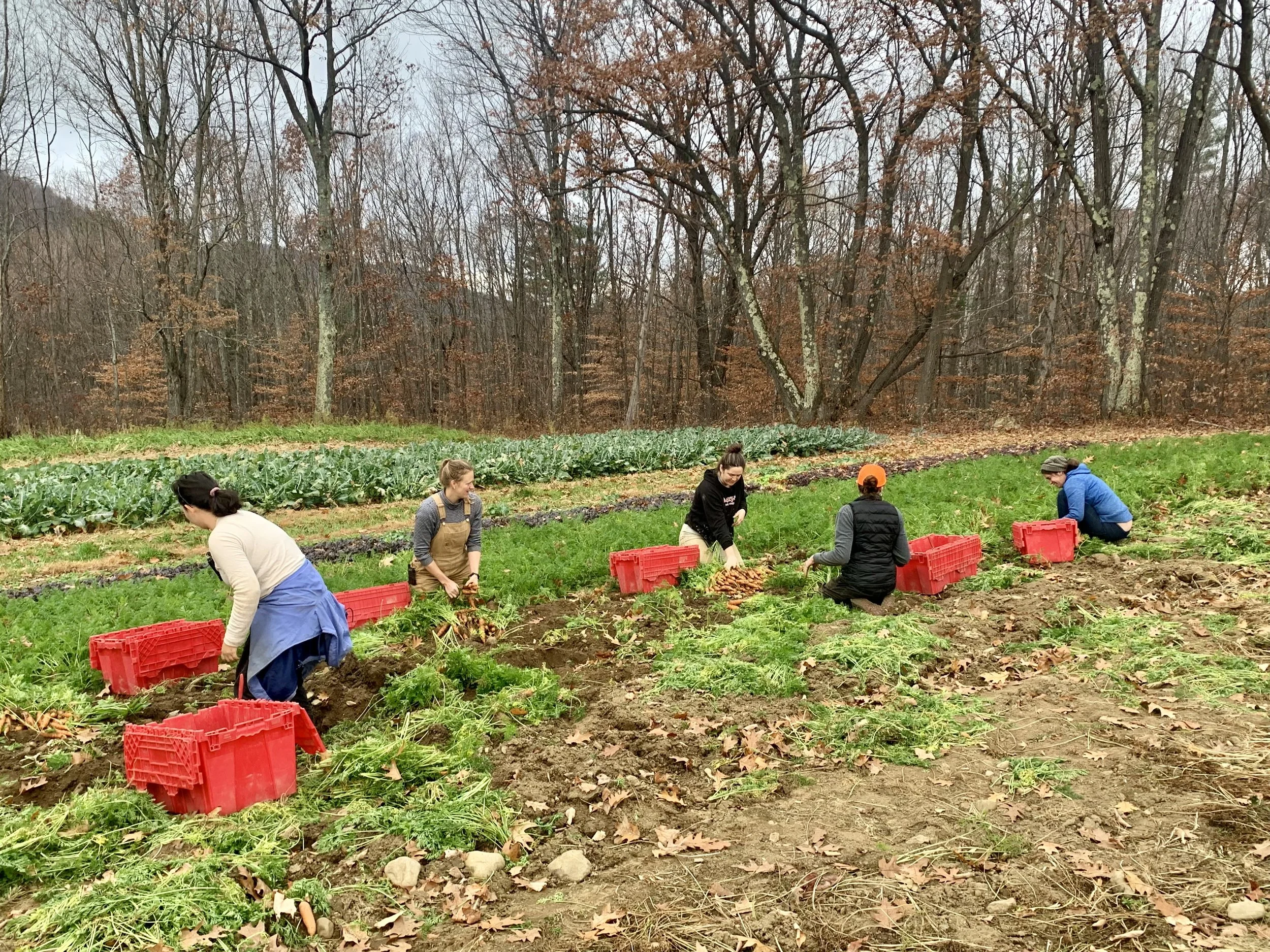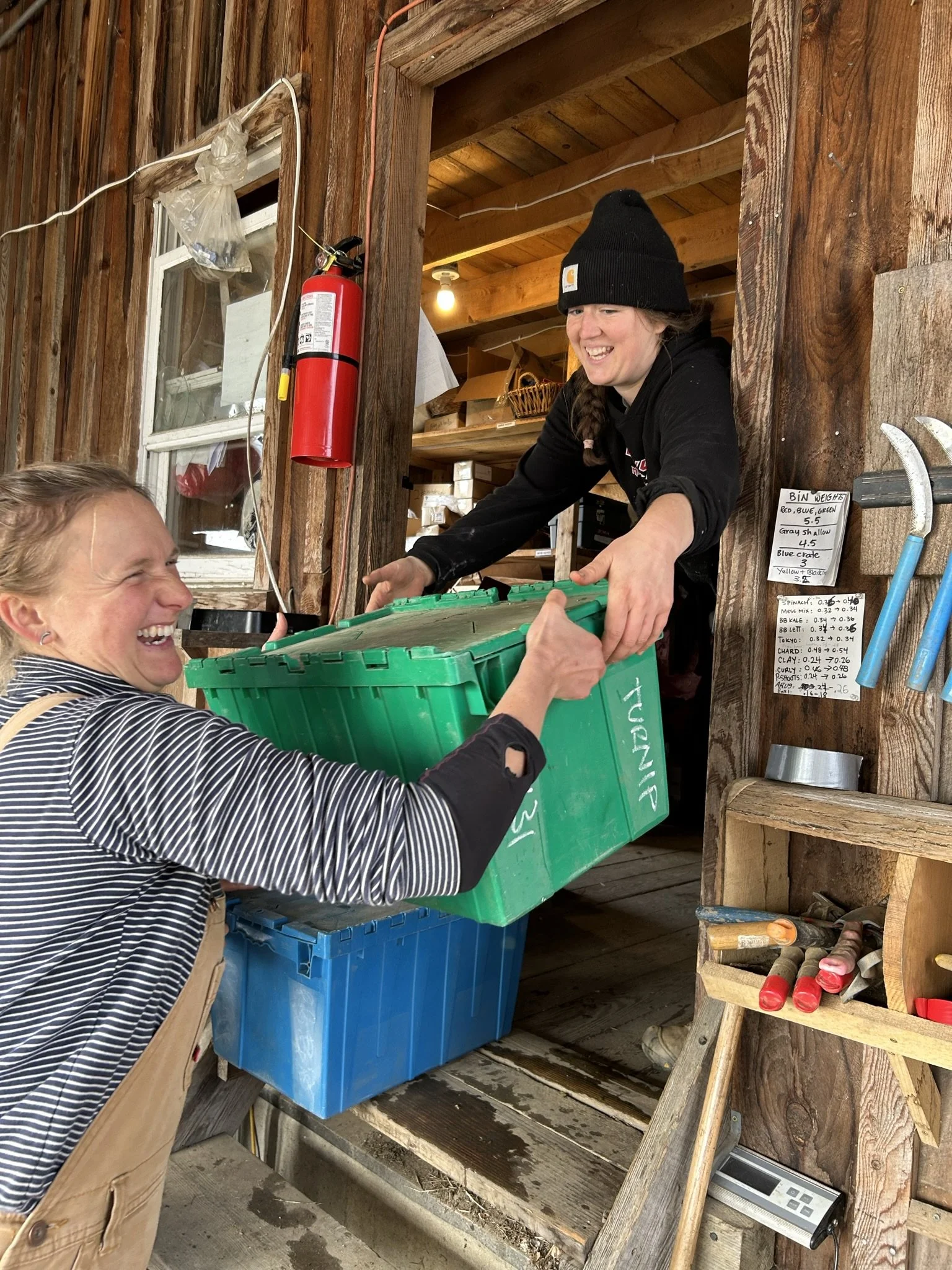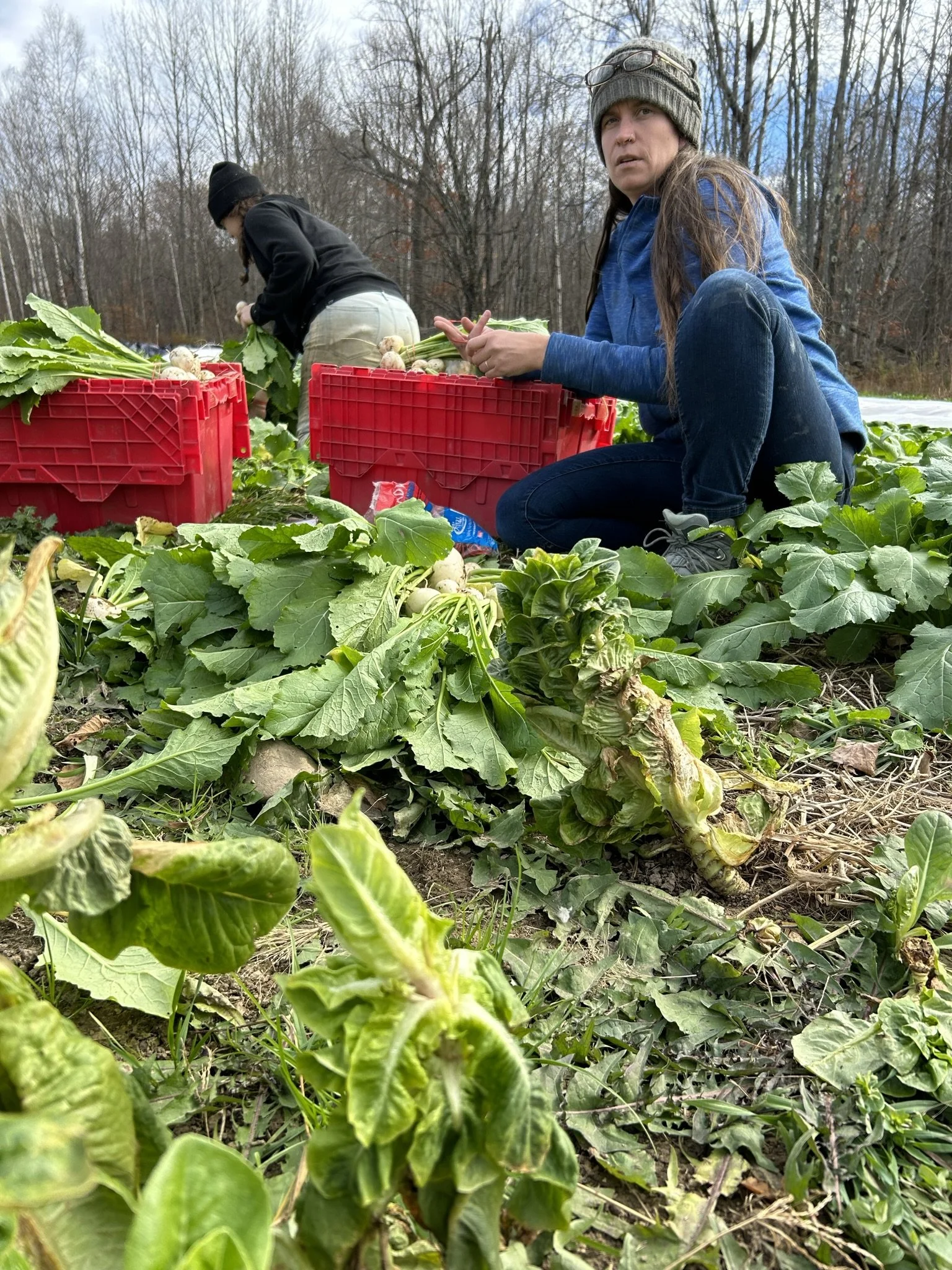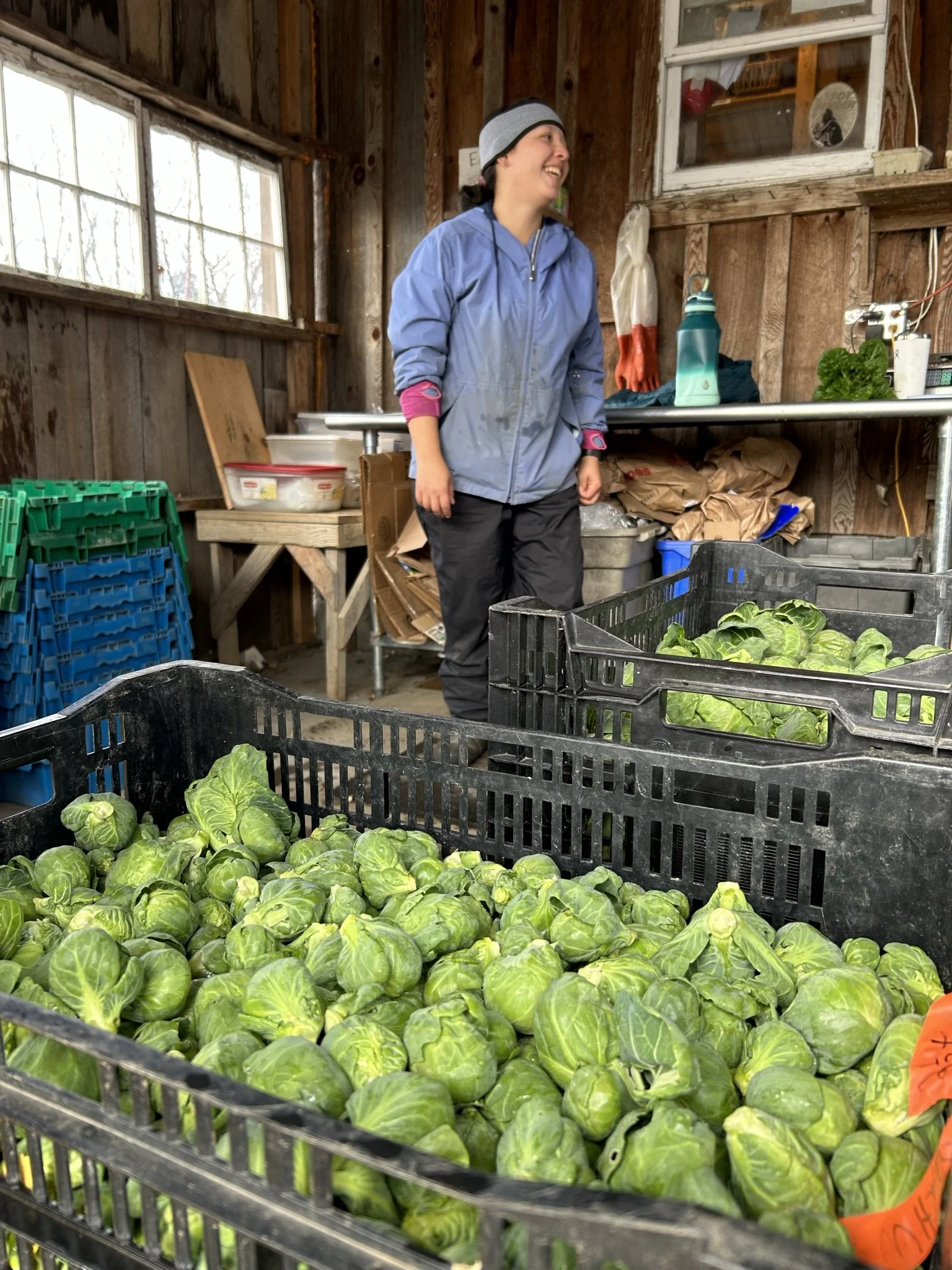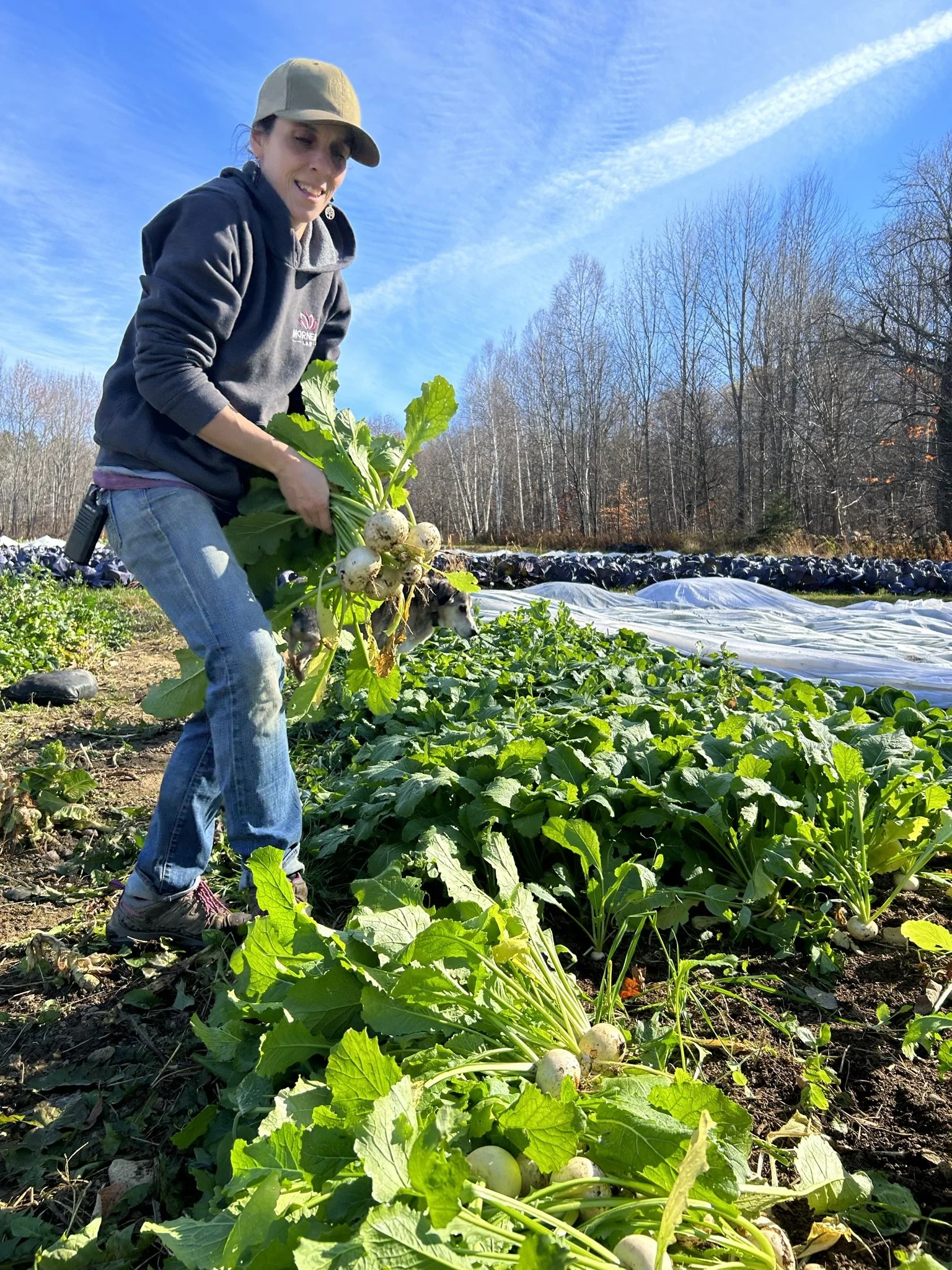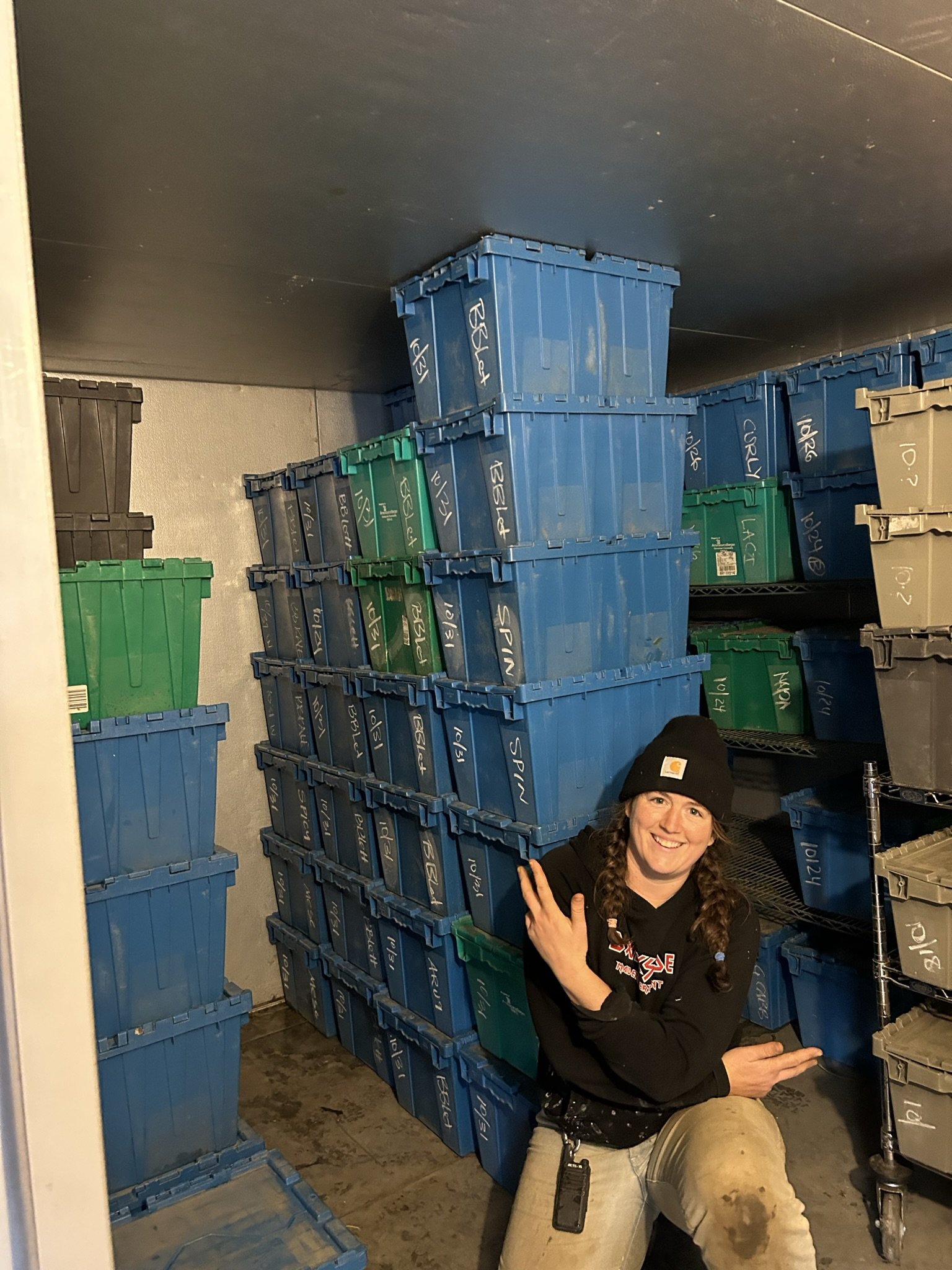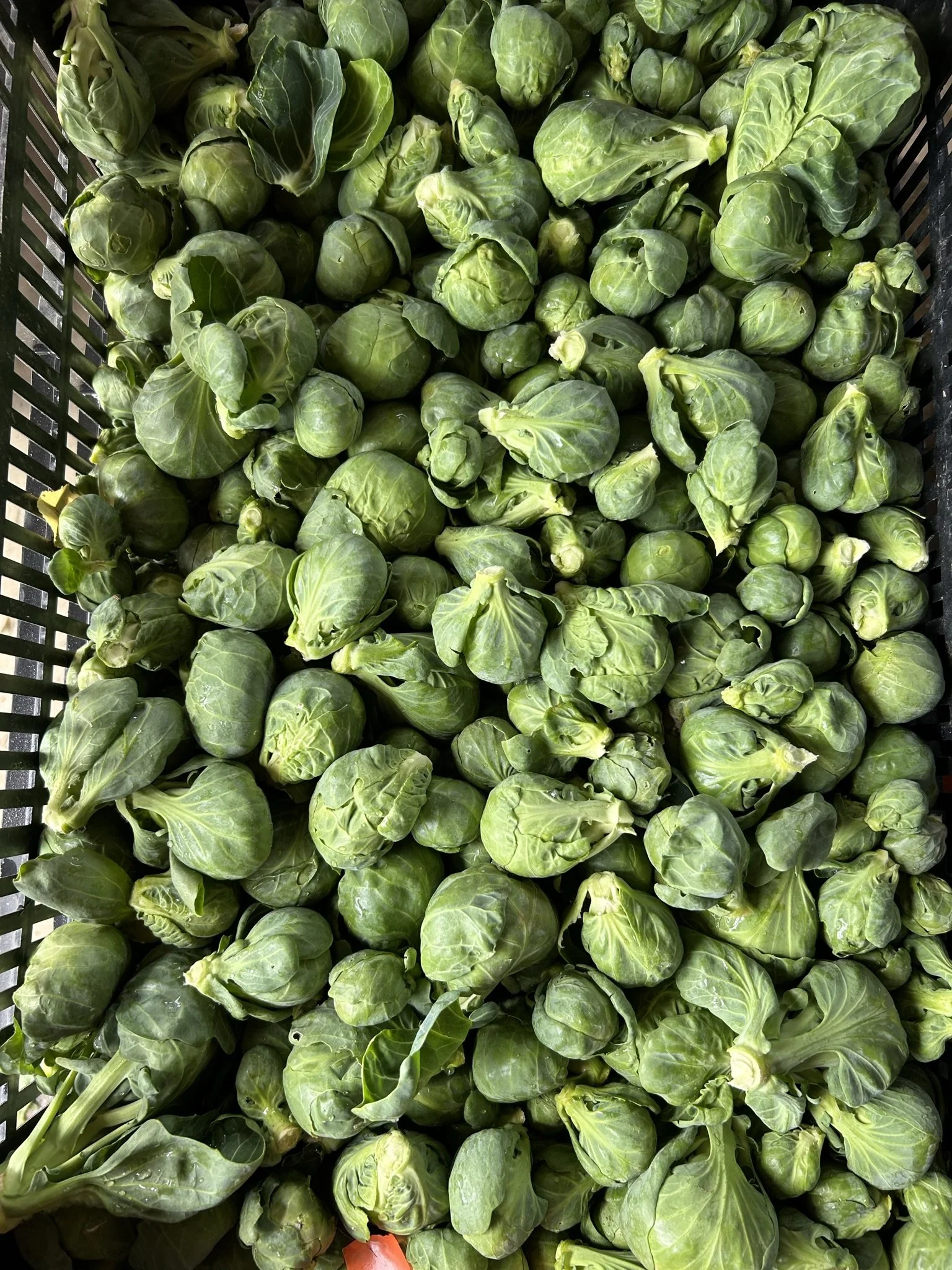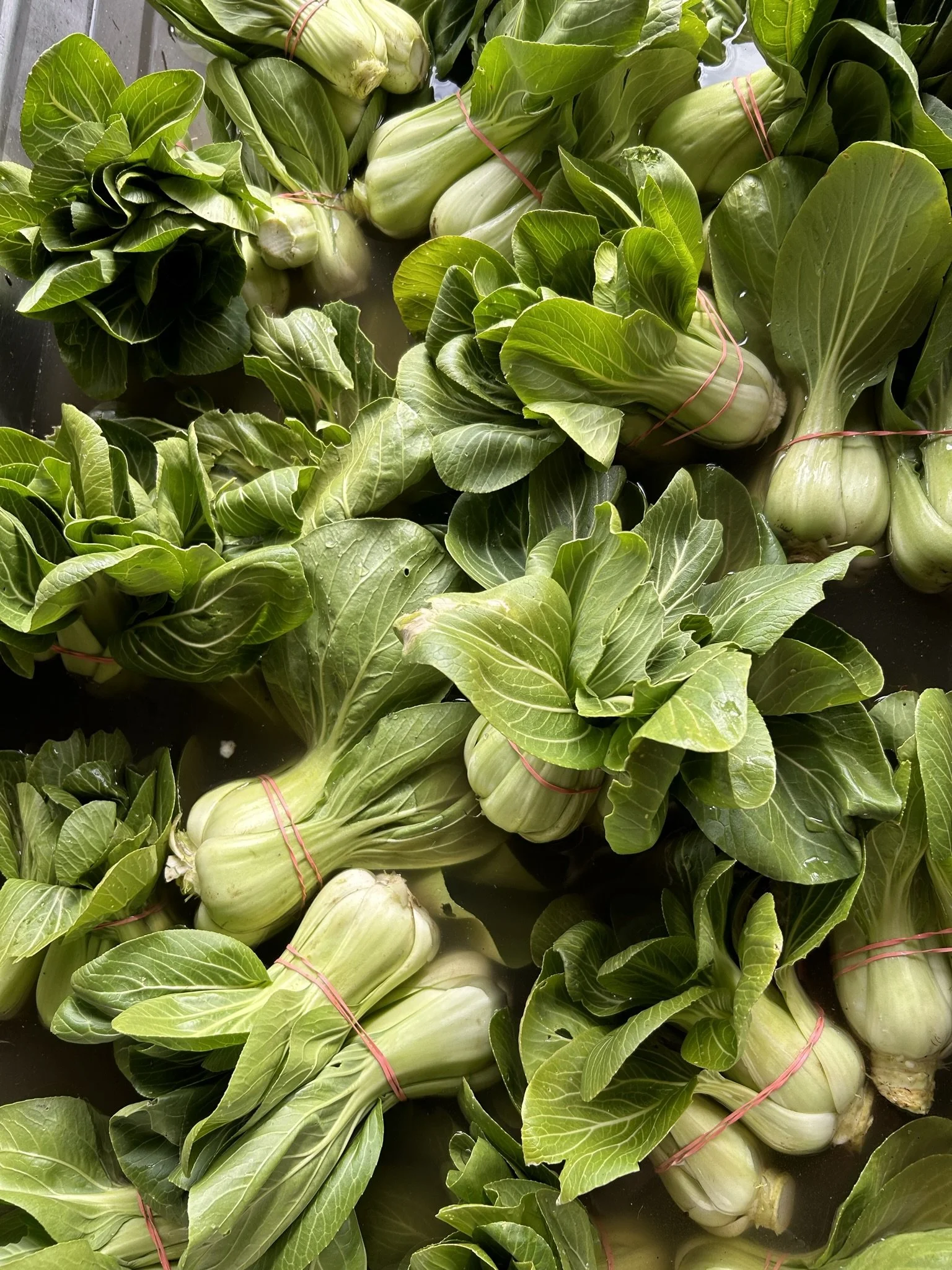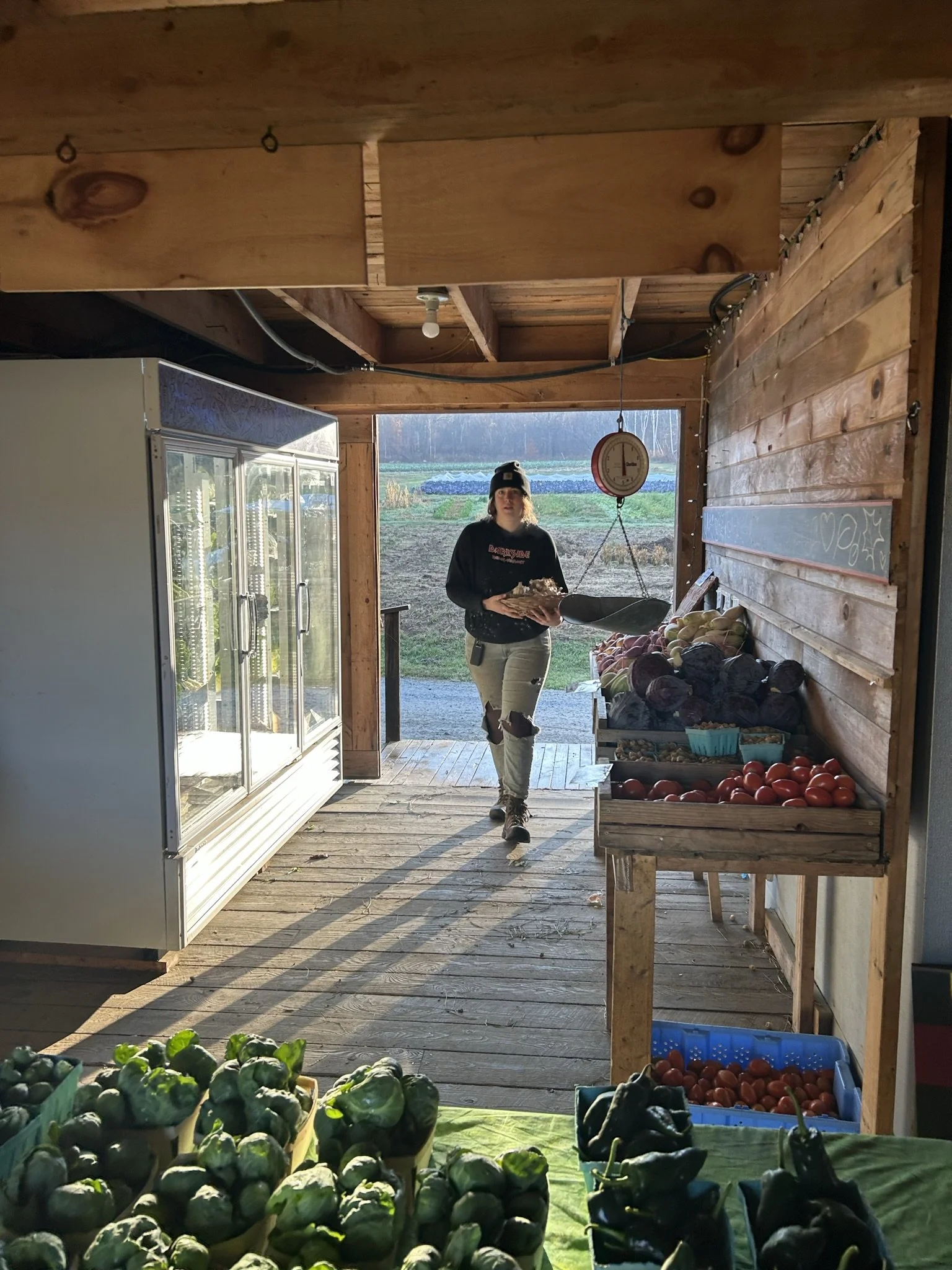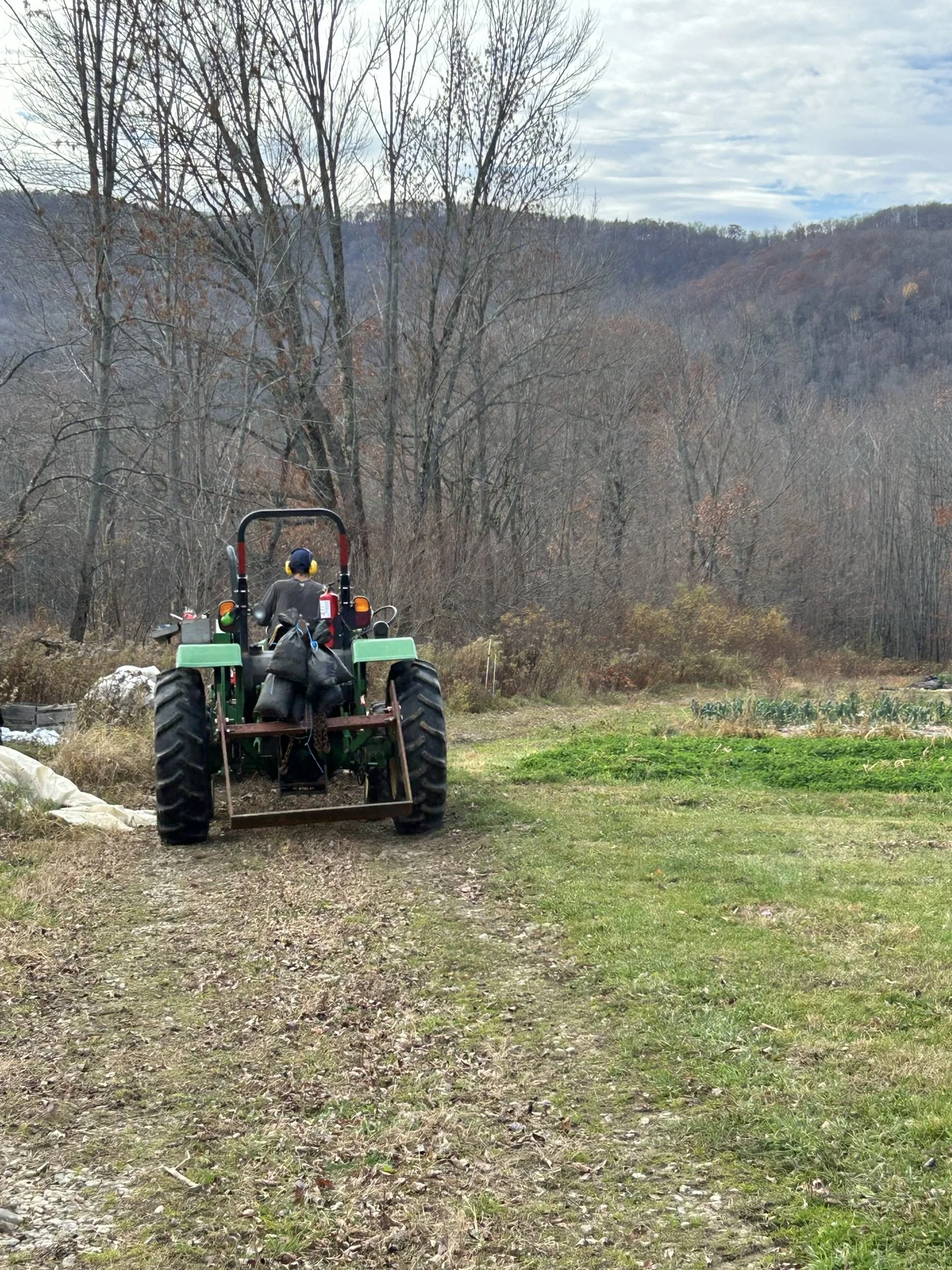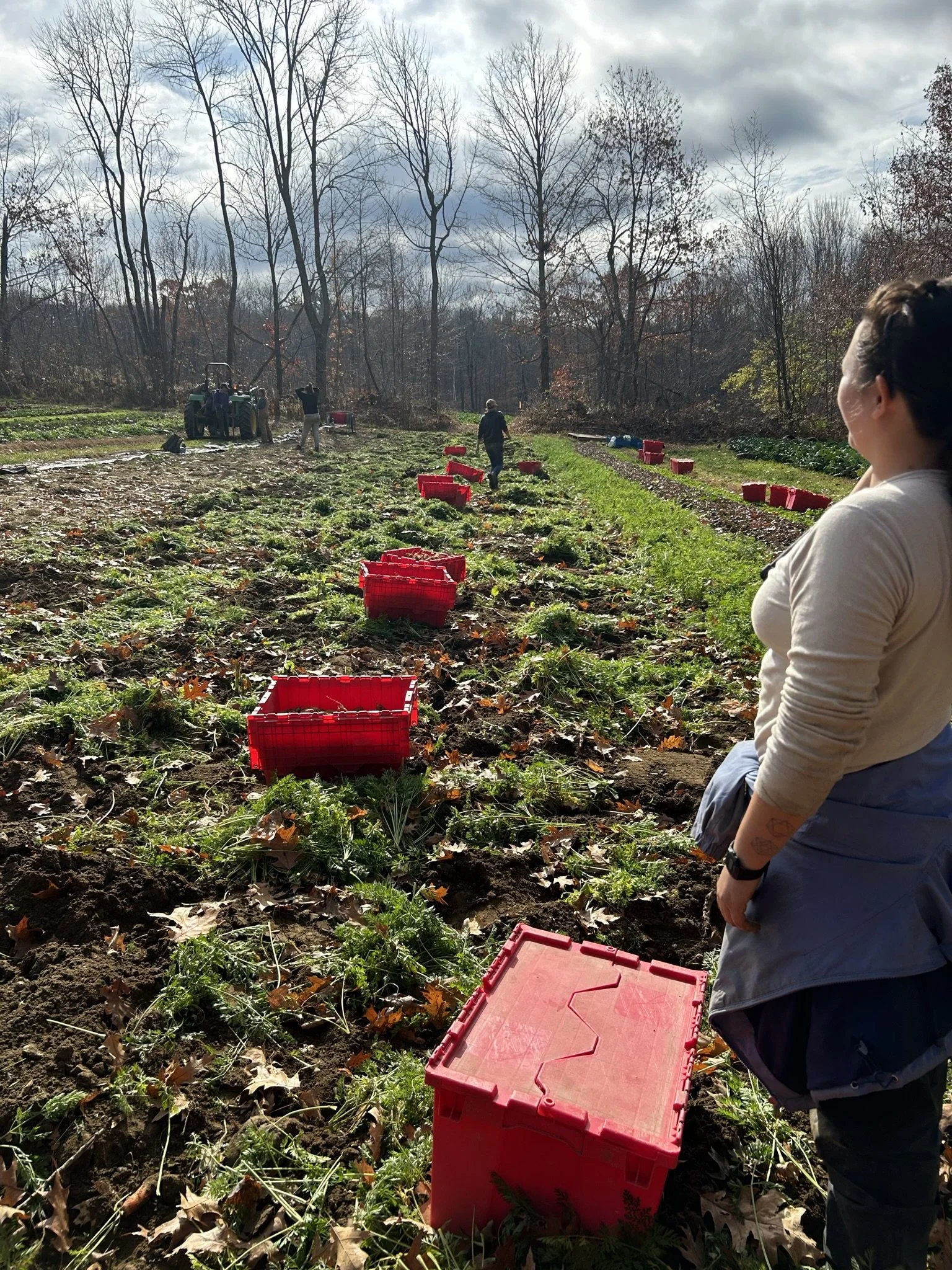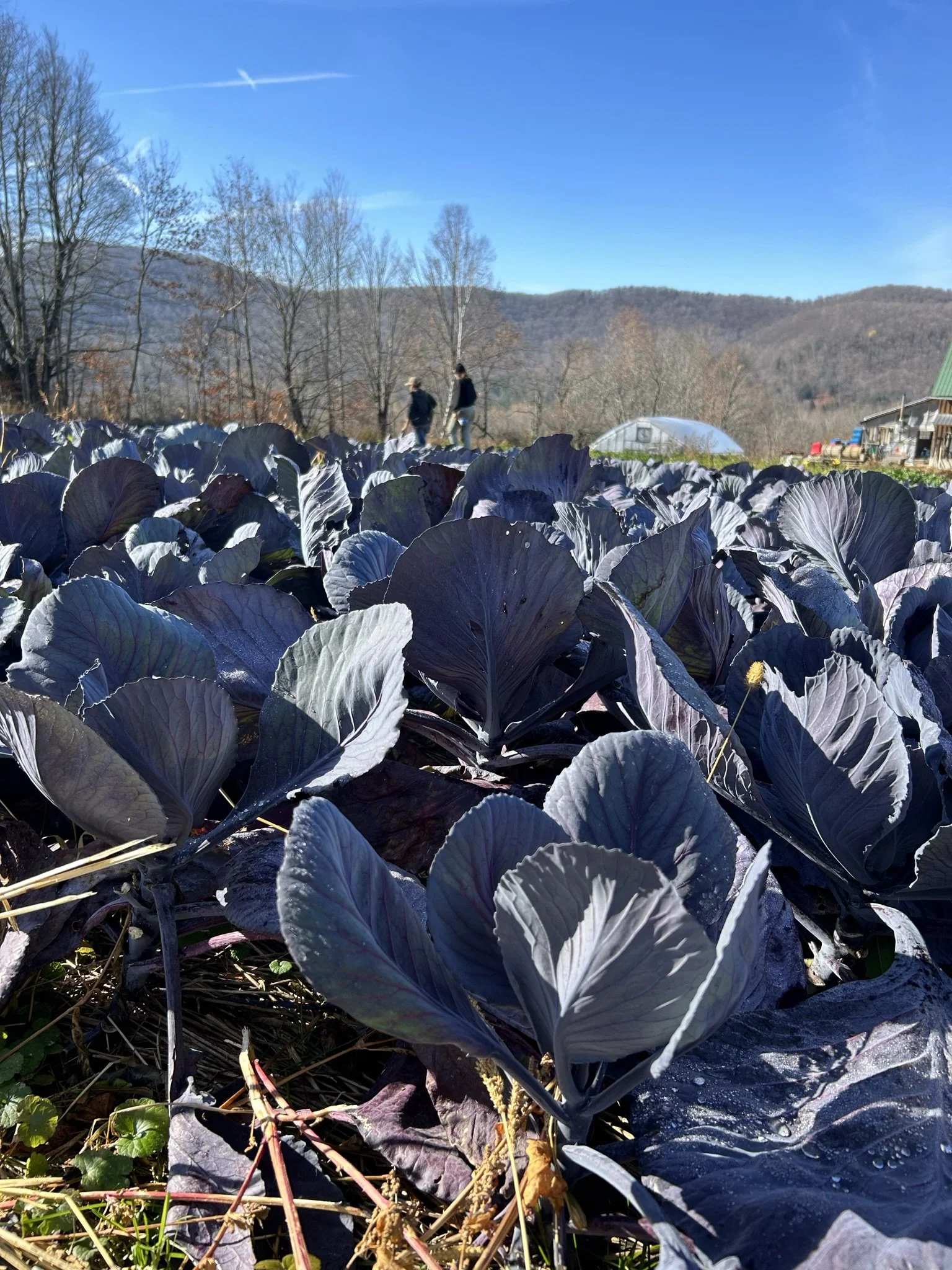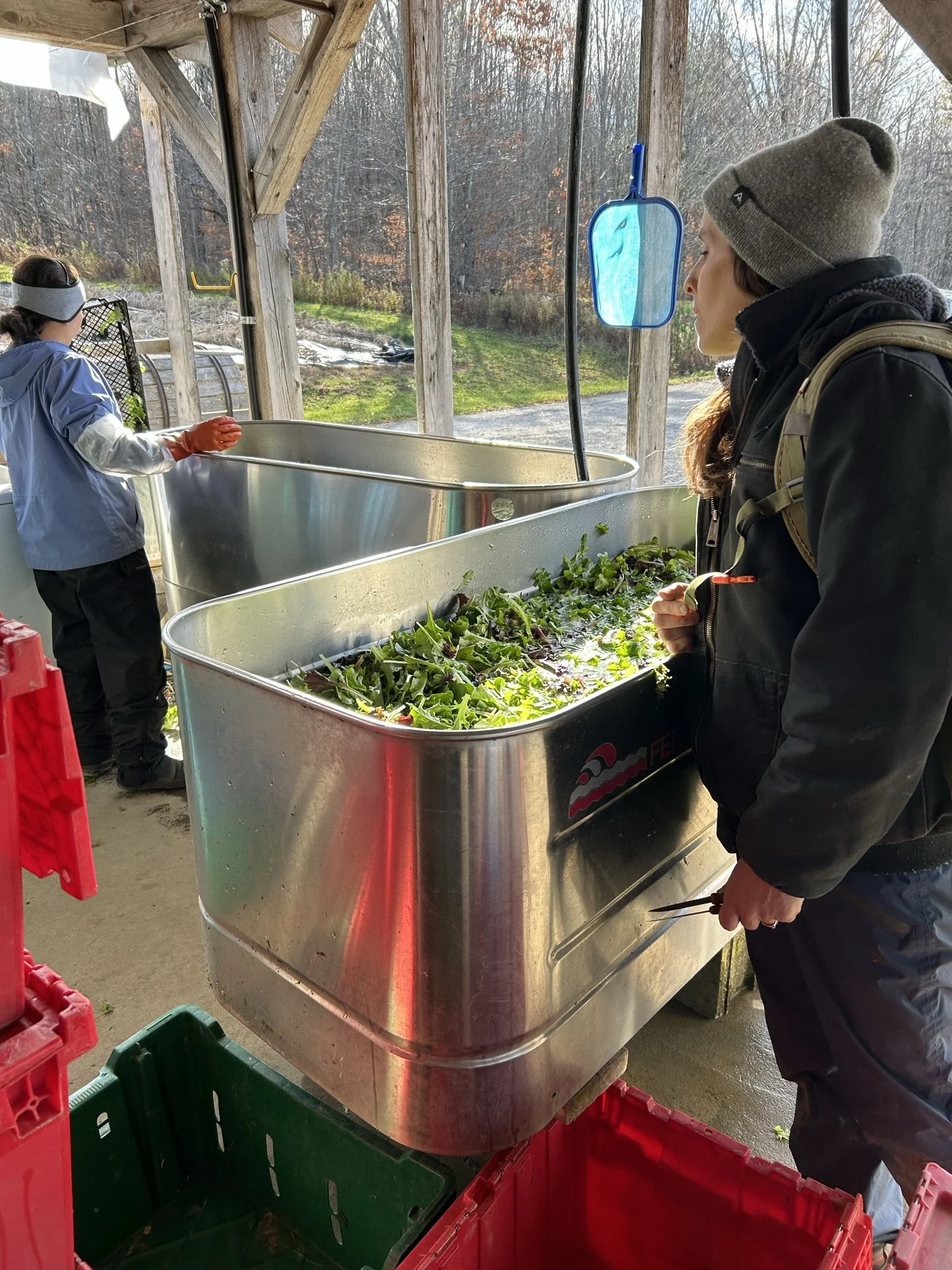3rd Week of the Fall CSA season: Week of November 9th
Katie undercutting a carrot bed with Molly and Ryan adding a little extra weight to the tool bar, photo by Taylor Morneau
CSA Balance Due
If you haven’t already paid, your balance is due this week. You can pay online through your account, mail a check to Evening Song Farm 48 Nice Road, Cuttingsville VT 05738, or leave a check in the CSA cash box at the barn. It’s very cool to pay in smaller chunks, just let us know what your payment plan is. You can also email or call us to pay with EBT.
If you get an auto email about a balance due, either pay that, or reach out if you think it’s wrong. It helps reduce our computer work load if payments are taken care of when a notice goes out. Thanks!
stocked CSA display cooler, Taylor Morneau
more display, photo by Taylor Morneau
and more! photo by Taylor Morneau
This Week’s Availability
This week we will have husk cherries, shallots, celery, leeks, fall kohlrabi, cilantro, baby lettuce, mini lettuce heads, spinach, baby bok choi, green curly kale bunches, lacinato kale bunches, red beets, yellow beets, carrots, garlic, yellow onions, purple and white daikon radishes, baby kale, mesclun mix, spicy greens, red and green napa cabbage, watermelon radish, salad turnips, broccoli, brussels sprouts, brussels tops*, celeriac**, green cabbage, and red and yellow potatoes.
*Brussel tops (versus brussels sprouts) are the loose, larger brussels that didn’t head up yet. They are delightful, taste the same as brussels sprouts, and are excellent if you are making a shredded brussels sprout salad or hash. (This is one of those cool veggies that is only going to be available from a local farm: they don’t have a commercial following yet to make it viable for larger farms to do anything with them besides compost them.)
**Notes on celeriac: First off, what is it? Celeriac is a root vegetable that tastes like celery. It can be used raw (think like a carrot stick to dips, shredded into salads, sliced on sandwiches) and cooked (add to mashed potatoes, roast in rounds with olive oil and lemon juice). But the most important thing to note that it is SO HARD to sort out celeriac for quality control. Even perfectly beautiful ones sometimes harbor some bad spots inside that we just cannot detect from looking at the outside. We debated just not offering them at all this season since we can’t tell based on the outside, but they are just such a fun veggie, so unique, and not really commercially available, so we decided to sort as well as we can and list them for you all to choose. If you order them for a packed bag, we will automatically be sending more than an item’s worth in anticipation that you will have to cut some parts out. If you get a lot of celeriac with bad spots inside, please make up those items in future weeks, by either taking an item while you are at the barn, or making a comment on your order form that you are making up an item for bad celeriac. Our advanced apologies if you get a bad root, but we are aware of the annoying situation. (If you are curious about the source of this problem, it’s water: Celeriac needs consistent water to grow without those bad spots developing inside. With how dry this summer was, it was just not possible to provide the consistent water it needed as it grew… we were hoping for better results than we seem to have with this harvest, but there are enough good ones in the mix that it seems worth it to give it a shot.)
Ordering closes at noon on Tuesdays for Wednesday bags, and at midnight on Wednesdays for Friday bags.
You do not need to fill out the form if you plan to come to the barn on Wednesdays or Thursdays to pick out your items yourself.
CSA display, photo by Taylor Morneau
more barn display, photo by Galen Miller
Farm News
What a week! The team hauled out all the winter storage carrots this week. They were undercut with large undercutter bar on the tractor, then pulled, removed tops, sent through the barrel washer, dried, bagged, and stored. It’s a fun an impressive project, and (despite the internal concern what this means for our climate) we have been appreciating the mild weather to get it done in, instead of freezing our little harvest fingers off. The last garlic field has been planted, and we got a small jump on mulching all the plantings.
This week we said “see ya later!” to our farm teammate (and my sister-in-law) Vanessa who is heading home to Colombia for the winter. It was a joy for us to have Vanessa join the Evening Song Farm crew this year. She brought many team skills, humor, an intuitive affinity for plants, and a passion for exploring all the uses of the grain corn we grew this year. (I personally feel grateful to now have confidence in my empanada making skills with both flour and corn based dough.) She and my brother will be back in the spring, so it’s not a long goodbye, but thank you, Vanessa, for all your hard work!
Last week Ryan and Cindy have been hard at work replacing the first or 4 end walls on tunnels that we are upgrading from lumber/sheet plastic construction to metal/corrugated plastic walls. These will be long term replacements, that will serve these tunnels for a very long time. Watching them work on this particular project brought me back to a time when we started farming, where I had this (hilarious) idea that farming was a ton of work in the beginning, setting up all the infrastructure while also growing food, but then it just becomes a “regular” amount of work when you are “only” growing food, but “done” with the infrastructure phase. I find this idea hilarious now because we are constantly repairing, improving, expanding, upgrading, etc, and the infrastructure work doesn’t really end, it just shifts. It made me recall our first fall farming, after an unexpectedly successful first summer season, we decided to put up caterpillar tunnels to experiment with growing winter greens our first winter growing. Here’s a blog post from 13 years ago, when we were farming in Pennsylvania, putting in our first caterpillar tunnels. (If you choose to get lost in old farm land, here’s a different blog from 12 years ago, around this time of year to see what Evening Song Farm was up during our transition from PA to VT this time of year.) Caterpillar tunnels are mobile, low-cost ways to extend the growing season: PVC hoops bent over stakes driven into the ground, then covered in plastic and secured with ropes. They were cool our first couple of years, but also kind of a pain to manage, and eventually got destroyed in a wind storm on Route 103, so we are grateful to the tunnels we have been able to put up over the years… and now these new end walls that Ryan and Cindy are putting on make it feel like they will require one less regular maintenance step over its life span.
Have a great week,
ESF Team: Ryan, Kara, Molly, Vanessa, Cindy, Taylor, Katie, Galen, K2, Sky and Soraya
Weekly Recipe
This week’s recipe can be done with any cooking green, not just spinach.
harvesting carrots, photo by Taylor Morneau
washing lettuce heads, photo by Taylor Morneau
carrot washing, photo by Taylor Morneau
this is how happy veggies make us, photo by Galen Miller
still happy, just contemplative, photo by Galen Miller
Vanessa washing brussels sprouts, photo by Galen Miller
Taylor harvesting salad turnips, photo by Galen Miller
Molly dancing in her “natural habitat” the cooler, photo by Galen Miller
brussels sprouts going through the wash bins, photo by Galen Miller
bok choi getting washed, photo by Galen Miller
Molly setting up display, photo by Galen Miller
Ryan heading to undercut carrots, photo by Galen Miller
bins and bins of harvested carrots, photo by Galen Miller
red cabbage heading up slowly this year, photo by Galen Miller
washing greens, photo by Galen Miller

